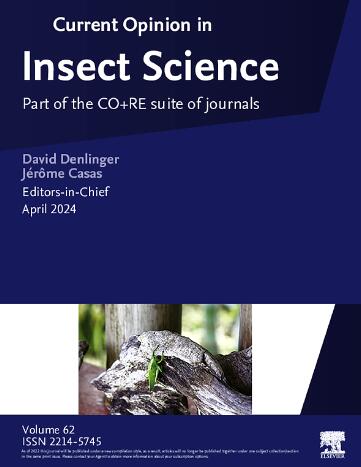致命昆虫监测中的伦理问题
IF 4.8
1区 农林科学
Q1 BIOLOGY
引用次数: 0
摘要
动物监测涉及获取有关动物或其活动的信息。现有监测技术、全球生物多样性和社会文化规范的变化给从事动物监测(包括昆虫监测)的生物学家带来了新的伦理挑战。越来越多的人开始关注与致命昆虫监测相关的伦理挑战,包括不明确的环境风险、对昆虫福利的伤害、对夺取生命的担忧等等。因此,我们调查了提出致死监测最佳实践问题的文献,这些问题虽然主要集中在传粉昆虫上,但更广泛地适用于任何昆虫监测活动。我们考虑了是否总是需要监测,监测是否必须总是致命的,以及致命监测是否需要像标准方法那样杀死尽可能多的个体。最后,我们提倡开展更多的伦理对话,以帮助实践者就影响这些问题的各种道德价值观进行谈判。本文章由计算机程序翻译,如有差异,请以英文原文为准。
Ethical issues in lethal insect monitoring
Animal monitoring involves acquiring information about animals or their activities. Changes in available monitoring technologies, global biodiversity, and sociocultural norms have raised novel ethical challenges for biologists engaged in animal monitoring, including efforts aimed at monitoring insects. A growing amount of attention has been paid to the ethical challenges associated with lethal insect monitoring to include unclear environmental risks, welfare harms to insects, concerns about taking life, and more. Accordingly, we survey the literature raising questions about best practices in lethal monitoring, which, while largely focused on pollinators, applies more broadly to any insect monitoring initiatives. We consider whether monitoring is always required, whether monitoring must always be lethal, and whether lethal monitoring needs to kill as many individuals as standard methods do. We end by advocating for additional ethical dialogue that can assist practitioners in negotiating the variety of moral values that bear on these issues.
求助全文
通过发布文献求助,成功后即可免费获取论文全文。
去求助
来源期刊

Current opinion in insect science
BIOLOGYECOLOGYENTOMOLOGY-ECOLOGY
CiteScore
10.40
自引率
1.90%
发文量
113
期刊介绍:
Current Opinion in Insect Science is a new systematic review journal that aims to provide specialists with a unique and educational platform to keep up–to–date with the expanding volume of information published in the field of Insect Science. As this is such a broad discipline, we have determined themed sections each of which is reviewed once a year.
The following 11 areas are covered by Current Opinion in Insect Science.
-Ecology
-Insect genomics
-Global Change Biology
-Molecular Physiology (Including Immunity)
-Pests and Resistance
-Parasites, Parasitoids and Biological Control
-Behavioural Ecology
-Development and Regulation
-Social Insects
-Neuroscience
-Vectors and Medical and Veterinary Entomology
There is also a section that changes every year to reflect hot topics in the field.
Section Editors, who are major authorities in their area, are appointed by the Editors of the journal. They divide their section into a number of topics, ensuring that the field is comprehensively covered and that all issues of current importance are emphasized. Section Editors commission articles from leading scientists on each topic that they have selected and the commissioned authors write short review articles in which they present recent developments in their subject, emphasizing the aspects that, in their opinion, are most important. In addition, they provide short annotations to the papers that they consider to be most interesting from all those published in their topic over the previous year.
 求助内容:
求助内容: 应助结果提醒方式:
应助结果提醒方式:


